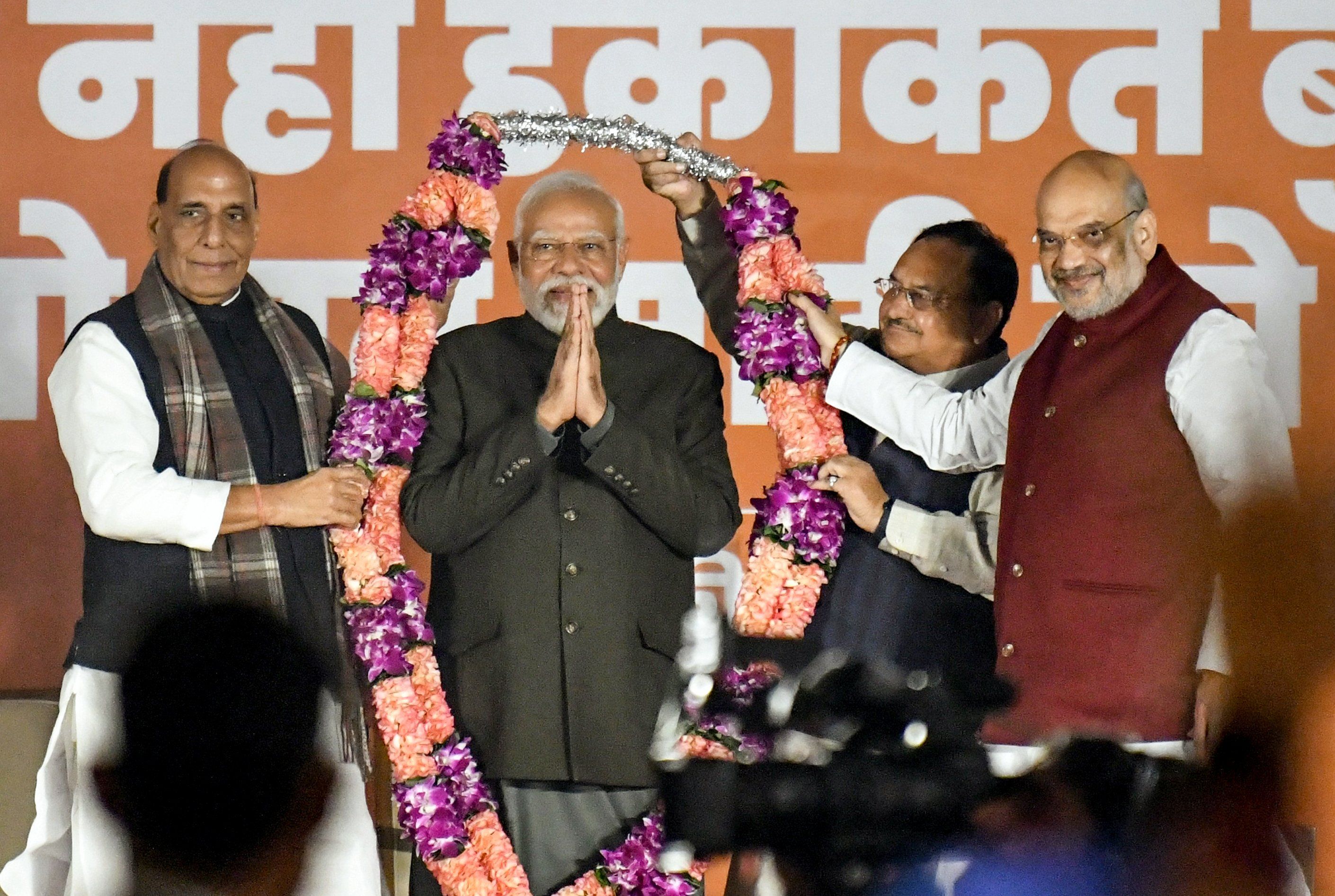Victories in state elections put Modi in commanding position for 2024
Prime Minister Narendra Modi’s BJP Party wrested control of the states of Rajasthan and Chhattisgarh from the opposition Congress Party and held onto power in Madhya Pradesh in closely watched local elections over the weekend. The results bode well for Modi's chances of winning a third term as PM in national polls next year.
Modi’s tactic of campaigning personally for his party largely paid off, and why wouldn’t it? He is one of the most popular leaders in the world, with approval ratings well above 70%. His victory in next year's general election (as always, the largest democratic exercise in world history) is hardly in doubt.
India is now the fastest-growing major economy and its power on the international stage has never been greater — particularly as New Delhi positions itself simultaneously as both a leader of the Global South while also a partner to the US in Washington’s rivalry with a rising China. But the BJP’s better-than-expected performance is mainly a reflection of Modi’s successes at home.
Over the past nine years, Modi’s government has pushed through important big-picture economic reforms like reducing the tax burden and streamlining foreign investment, while also delivering practical improvements that have improved life for hundreds of millions of ordinary Indians, such as mass toilet installation and rural electrification. How do you not vote for the guy who made sure your kid has light to study by at night and isn’t missing school because of illnesses caused by poor sanitation?
Criticism from local activists and international watchdogs of Modi’s mistreatment of Muslims and other non-Hindu minorities simply hasn’t dented his popularity.
While Modi’s BJP isn’t a lock everywhere in India — Congress won the state of Telangana and a regional party won in Mizoram — the overall picture for Modi could hardly be better.
